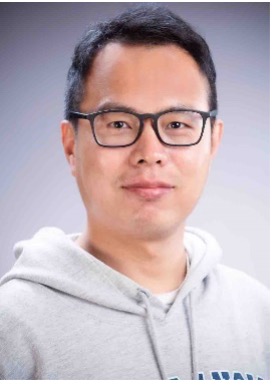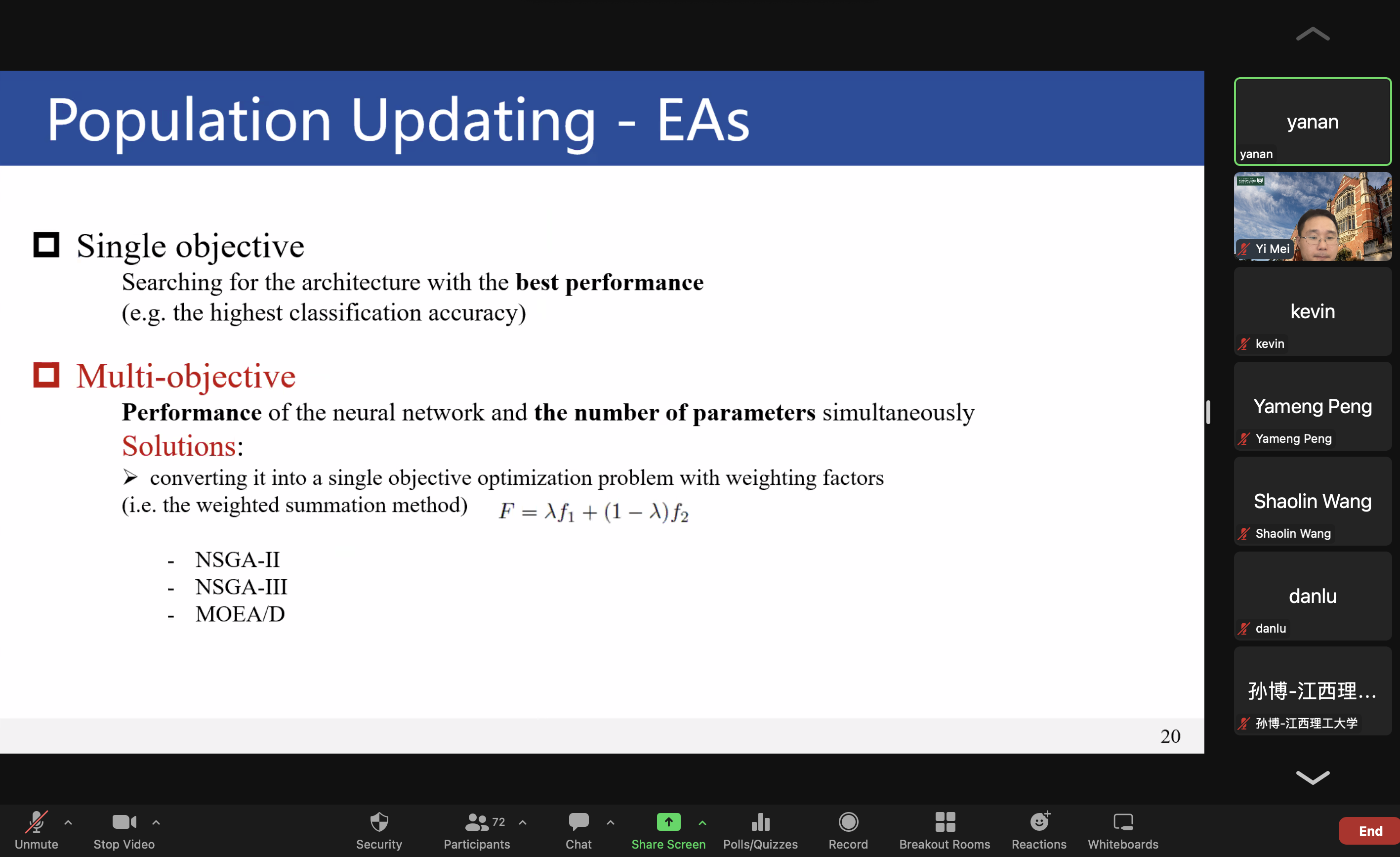

Speaker: Yanan Sun, Professor, Department of Artificial Intelligence, Sichuan University, China
Date: 31 May 2022
Time: 3:00 - 4:00pm (Beijing Time, UTC+8)

Prof. Yanan Sun is currently a Professor at the Department of Artificial Intelligence, Sichuan University, China. He obtained his Ph.D. degree from Sichuan University in 2017 and was a Postdoc Research Fellow of Victoria University of Wellington, New Zealand from 2017 to 2019. His research interests mainly include evolutionary computation, neural networks, and their applications in evolutionary neural architecture search. He has published ~50 peer-reviewed papers in top-tier conferences and journals, and most are published in IEEE TEVC, IEEE TCYB, IEEE TNNLS, CEC, and GECCO. Among the publications, four have been ranked as ESI TOP 1% Highly Cited Paper, three have been ranked as ESI TOP 0.1% Hot Paper, and two have been selected as Research Frontier papers from IEEE CIS Newsletter. Prof. Sun has made contributions to the research field of neural architecture search. In particular, the indicator “GPU Day” measuring the algorithm complexity of neural architecture search algorithm was firstly proposed by Prof. Sun. The term “performance predictor” which is a new research direction to accelerate neural architecture search was also firstly proposed by Dr. Sun. In addition, Dr. Sun has also led the construction of the BenchENAS platform that provides neural architecture search as a benchmarking platform.
Deep Neural Networks (DNNs) have achieved great success in many applications. The architectures of DNNs play a crucial role in their performance, which is usually manually designed with rich expertise. However, such a design process is labor-intensive because of the trial-and-error process, and also not easy to realize due to the rare expertise in practice. Neural Architecture Search (NAS) is a type of technology that can design architectures automatically. Among different methods to realize NAS, Evolutionary Computation (EC) methods have recently gained much attention and success. In this talk, we will briefly summarize the EC-based NAS algorithms over 200 papers of most recent EC-based NAS methods in light of the core components, to systematically discuss their design principles as well as justifications on the design. In addition, current challenges and issues of EC-based NAS are also discussed to identify future research in this emerging field.
The Webinar went very successful, with 70+ participants.

Back to the Webinar Series